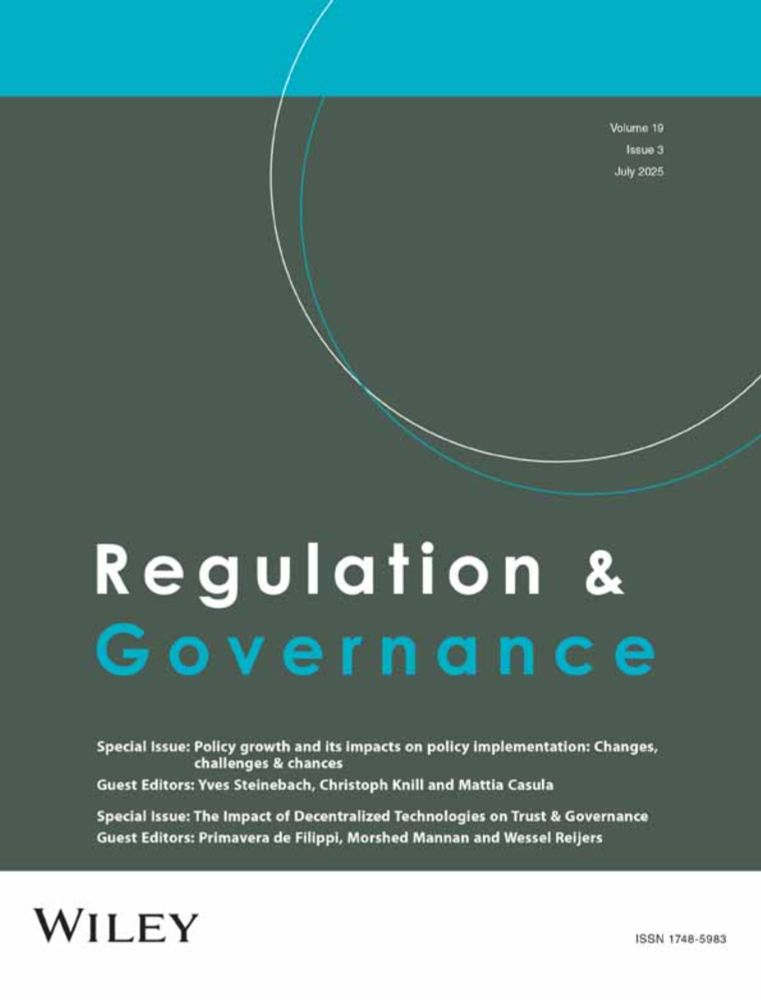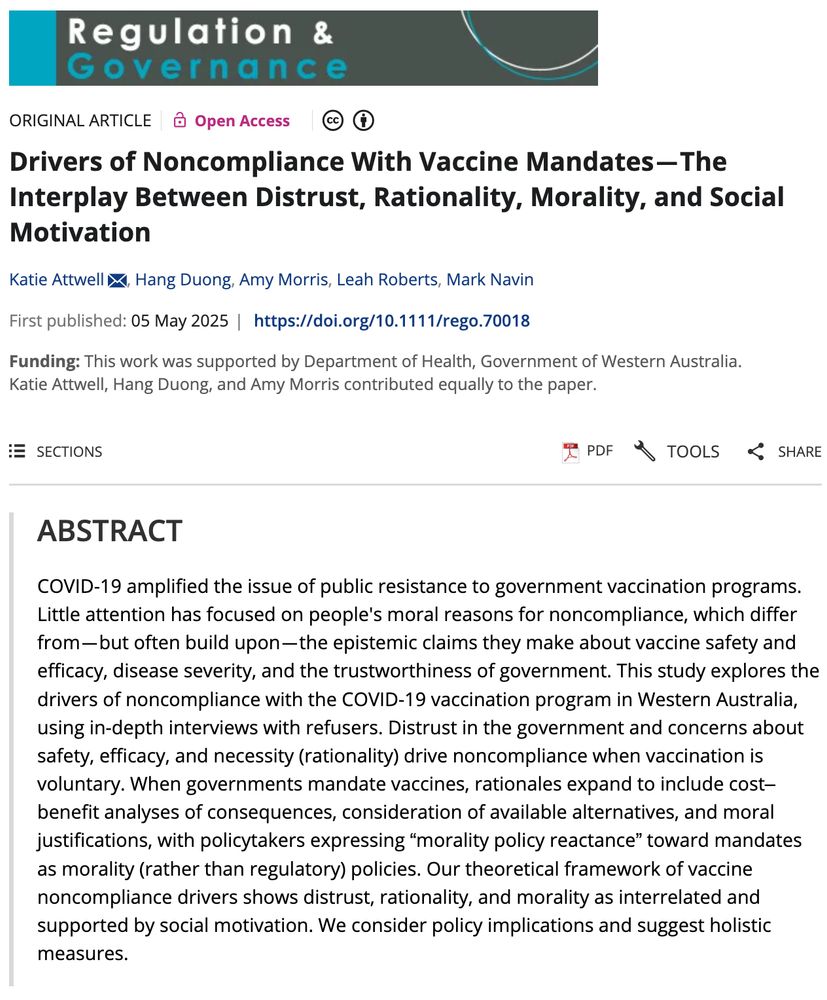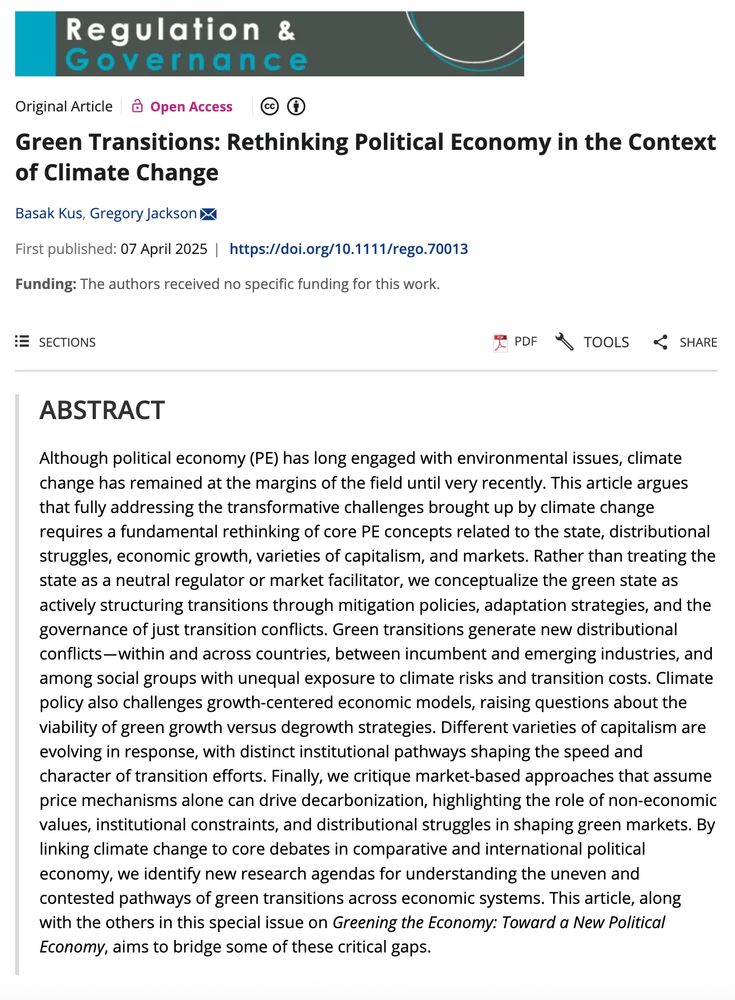Regulation & Governance
@reggovjournal.bsky.social
310 followers
100 following
36 posts
Regulation & Governance is the leading journal dedicated to the study of regulatory governance for academics across the social sciences, as well as regulators and legal experts in business and civil society. https://onlinelibrary.wiley.com/journal/17485991
Posts
Media
Videos
Starter Packs
Pinned
Reposted by Regulation & Governance
Reposted by Regulation & Governance
Reposted by Regulation & Governance
Reposted by Regulation & Governance
Reposted by Regulation & Governance
Reposted by Regulation & Governance
Erik Neimanns
@eneimanns.bsky.social
· Jun 11

The Local Politics of Social Investment Under Fiscal Constraints: The Case of Childcare Expansion in Germany
Governments in many of the advanced economies expanded childcare, an exemplary social investment policy, in recent years. Yet, considerable regional variation exists in expansion efforts, and often t...
doi.org
Reposted by Regulation & Governance
Reposted by Regulation & Governance























